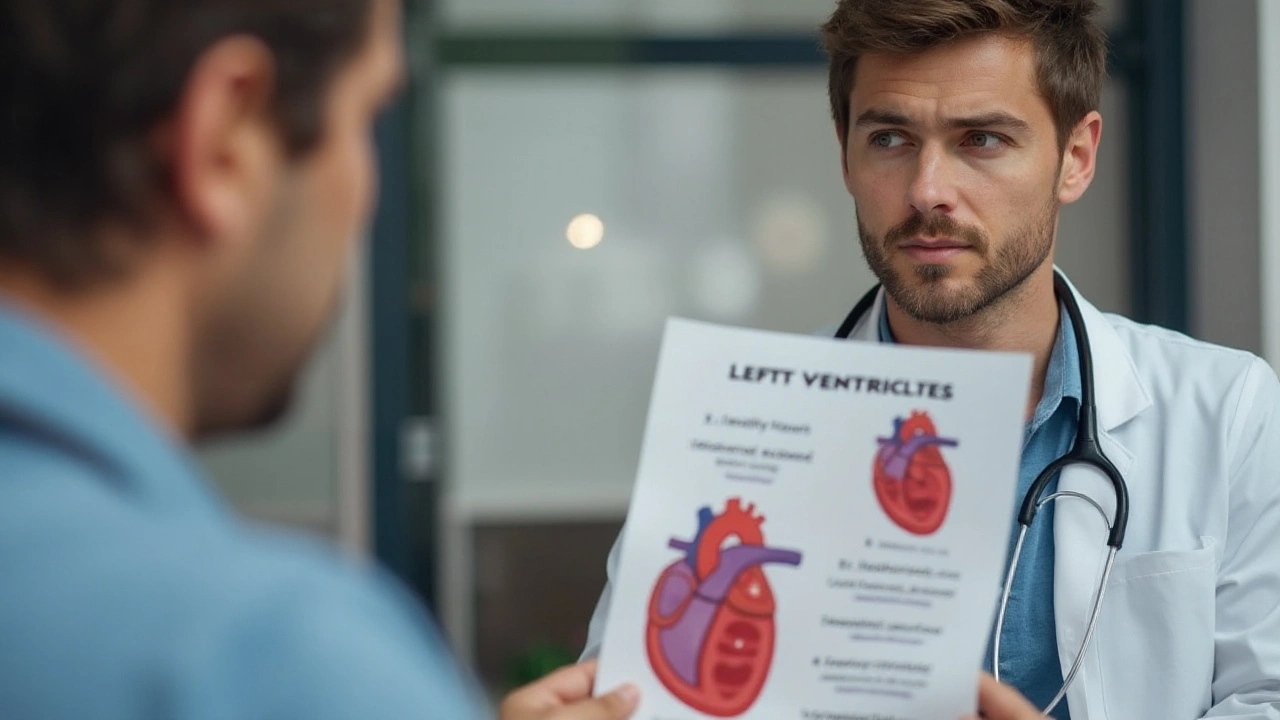Cardiac Issues Made Simple: What You Need to Know
If you’ve ever felt a flutter in your chest or heard a friend talk about “heart problems,” you might wonder what’s really going on. Cardiac issues cover everything from occasional palpitations to chronic conditions like angina or heart failure. The good news? Most of them can be managed with the right info, a few lifestyle tweaks, and, when needed, medication.
First off, let’s clear up a common mix‑up: a “heart attack” and “angina” aren’t the same. Angina is that tight, squeezing feeling you get when your heart isn’t getting enough oxygen. It’s usually a warning sign that your arteries are narrowing. A heart attack happens when blood flow stops completely, causing heart muscle damage. Knowing the difference helps you react faster and get the right care.
Spotting the Warning Signs
Most cardiac issues start with subtle clues. Look out for chest discomfort, shortness of breath, unexplained fatigue, or an odd heartbeat that feels like it’s skipping a beat. Sometimes the signs show up in the arms, jaw, or back. If any of these pop up during activity or even at rest, it’s worth checking with a doctor. Early detection often means simpler treatment.
For many people, a quick check‑up can reveal high blood pressure or high cholesterol—two silent culprits that worsen heart health over time. Getting those numbers down with diet, exercise, or medication can keep bigger problems at bay.
Medications You Might Hear About
When it comes to meds, you’ll hear names like beta‑blockers, ACE inhibitors, and statins. One drug that pops up less often but is still important is Trimetazidine, sold under the brand name Vastarel. It isn’t a blood‑pressure pill; instead, it helps heart cells use energy more efficiently during stress. Doctors may prescribe it for angina when other treatments aren’t enough.
Trimetazidine works by shifting the heart’s fuel source from fatty acids to glucose, which needs less oxygen. That can reduce chest pain episodes and improve exercise tolerance. Like any medication, it has side effects—most commonly nausea or dizziness—so it’s best to discuss with your doctor whether it fits your situation.
Other common heart meds include:
- Beta‑blockers: Slow the heart rate and lower blood pressure.
- ACE inhibitors: Help relax blood vessels.
- Statins: Lower cholesterol and reduce plaque buildup.
Remember, medication works best when paired with lifestyle changes.
Everyday Habits That Help Your Heart
Think of your heart like a car engine—it runs smoother when you feed it good fuel and keep up with maintenance. Here are three easy habits you can start today:
- Move a little more: Even a 30‑minute walk most days lowers blood pressure and improves circulation.
- Swap sugary drinks for water: Cutting down on added sugars reduces triglycerides and helps weight control.
- Sleep enough: Aim for 7‑8 hours; poor sleep raises stress hormones that can strain the heart.
Stress management matters too. Simple breathing exercises, short meditation sessions, or hobbies you enjoy can keep cortisol levels in check, which benefits heart rhythm and blood pressure.
If you’re a smoker, quitting is the single most powerful step you can take. Resources like quit‑lines, nicotine patches, or apps make the process easier than you might think.
When to See a Professional
Even with all the self‑care tricks, some cardiac issues need a doctor’s touch. Schedule an appointment if you experience persistent chest pain, sudden shortness of breath, fainting spells, or a rapid, irregular heartbeat. Your provider may order an ECG, stress test, or blood work to pinpoint the problem.
In many cases, a cardiologist will suggest a personalized plan that mixes medication, diet, and exercise. Don’t hesitate to ask questions—understanding why a treatment is chosen helps you stick with it.
Heart health isn’t a one‑time fix; it’s a series of small, consistent choices. By recognizing warning signs, staying informed about meds like Trimetazidine, and adopting heart‑friendly habits, you give yourself the best shot at a stronger, longer‑living heart.

19
Jul
The Rise of Left Ventricular Failure Among Young Adults
Left ventricular failure is becoming more common among young adults. This article explores the causes, symptoms, and treatments of this heart condition. It also offers practical advice on how to prevent left ventricular failure through lifestyle changes.